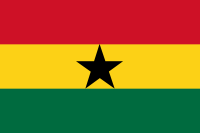 Ms Selvi J Jayalalithaa,
Ms Selvi J Jayalalithaa, Hon'ble Chief Minister for the Indian State of Tamil Nadu, has asked the Indian Federal Government to provide subsidies to the fisheries sector in her state.
The request for subsidies was made at least twice.
For the first one, on 14 June 2011, the Chief Minister handed over a memorandum to Indian Prime Minister Manmohan Singh with a number of demands for financial assistance to fishermen in Tamil Nadu state.
What struck me, when reading the request made by the Chief Minister, is that the subsidies asked for relate to a whole range of programmes: vessel modification, new engines, aid to processing, fisheries specific infrastructure and, last but not least, fuel costs.
I copy here the demands on fisheries indcluded in this memorandum:
I. New fishing harbours: At present, approximately 1,100 mechanised fishing boats are engaged in fishing from Rameswaram base.
It is required to decongest the fishing fleet"financing for fishing harbours one at Poompuhar in the North at an approximate cost of 75 crores [750,000,000 rupees or 15,148,000 USD] and another one at Mookaiyur, South of Rameswaram at an approximate cost of 60 crores [600,000,000 rupees or 12,118,000 USD] are long felt needs.
II. Special package for conversion of bottom trawlers into Deep Sea Tuna Long Liners: In order to reduce the trawler fishing pressure in the disputed waters of the Palk Bay area, the Government of India should offer a special package for conversion of bottom trawling boats into deep sea Tuna Long Liners suitable for deep sea fishing. As against the existing subsidy pattern available at the rate of 50%, the Government of India should give at least 90% subsidy for such conversion of vessels as a special incentive for conversion of the boats of thePalk Bay area. A sum of 15 crores [150,000,000 rupees or 3,000,000 USD] should be earmarked each year for this purpose.
II Assistance for Mid Sea Fish Processing Park: In order to
benefit the traditional fishermen against the background of dwindling catch in
shallow waters, the State requires assistance from the Government of India for
a Pilot Project of establishing a Mid Sea Fish Processing Unit, which will also
act as a ‘Value Added Export Oriented Park’. Under this Project, which will
cost approximately 80 crores [800,000,000 rupees or 16,158,000 USD] , a ‘Carrier Mother Vessel’ will be stationed at
mid-sea, and it will act as a source of essential inputs for the ‘Baby vessels’
which will be involved in commercial fishing in the deep seas. This will serve
a dual purpose of adding value to the fish caught in the deep sea sand also consequently
reduce the pressure of fishing in the shallow waters of Palk Bay.
IV. Reimbursement of
Central Excise Duty on High Speed Diesel (HSD) to mechanized boats: To reduce
the operational cost of mechanized fishing boats, the Government of India has a
Scheme to reimburse the Central Excise Duty on HSD oil supplied to such boats.
However, the conditions imposed for reimbursement of the Central Excise Duty,
such as the requirement of the Boat owners to be in the BPL category (which is
practically impossible for any motorised boat owner), and the monthly ceiling
of only 500 litres per boat for availing of the subsidy are unworkable for
Tamil Nadu, as well as other Coastal States. Such conditions should immediately
be reviewed in order to make this Scheme operational.
V. Motorisation of traditional crafts: The present
assistance of 3 crore per year for motorisation of nearly1,000 traditional
crafts every year is very meagre for Tamil Nadu since there are 32,000 non-motorised
traditional crafts in the State. It is requested that a Package of 15 crore [150,000,000 rupees or 3,000,000 USD] per
year may be sanctioned so that at least 5,000 traditional crafts are motorized
every year.
Here is an official press release by the State Government of Tamil Nadu announcing the hand over of the Memorandum:
http://www.tn.gov.in/seithi_veliyeedu/pic.php?id=1971
And here a link to a website where a copy of the memorandum can be found (I did not manage to find a copy in the official website).
http://www.tamilguardian.com/file/File/Memorandum_submitted_by_Tamil_Nadu_Chief_Minister_Selvi_J.pdf
On 25 December 2011, and taking advantage of a visit of Prime Minister Manmohan Singh to Channai, the Chief Minister handed over another Memorandum that included a reminder of the requests made in the previous one, and of "A special package of Rs.10 crore every year for the State for the dredging of fishing harbours and bar mouths. The Government of Tamil Nadu had requested for an assistance of Rs.10 crore [100,000,000 rupees or 202,000 USD] every year to take up dredging of fishing harbours and bar mouths each year."
Here is an official press release on this second Memorandum:
http://www.tn.gov.in/seithi_veliyeedu/pressphoto.php?id=2909
And here the link to the webpage with a copy of the Memorandum of 25 December 2011:
http://www.tn.gov.in/seithi_veliyeedu/pr25Dec11/pr251211_273.pdf










